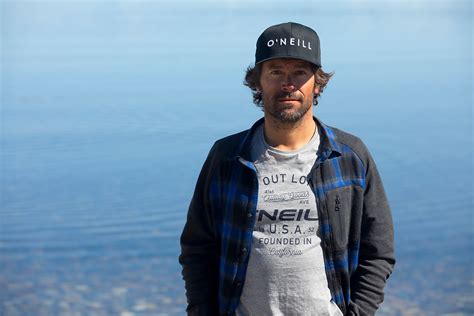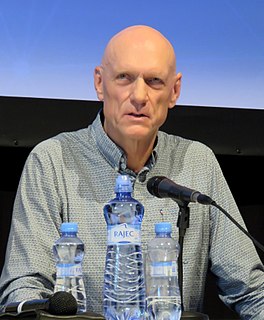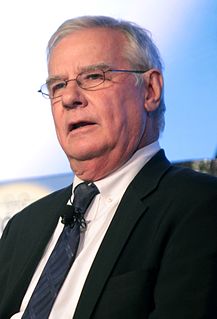A Quote by Annie Lowrey
Talking with economists, climate scientists, and psychologists convinced me that depersonalizing climate change, such that the only answers are systemic, is a mistake of its own. It misses how social change is built on a foundation of individual practice.
Related Quotes
Despite the international scientific community's consensus on climate change, a small number of critics continue to deny that climate change exists or that humans are causing it. Widely known as climate change "skeptics" or "deniers," these individuals are generally not climate scientists and do not debate the science with the climate scientists.
Climate scientists think of nothing but climate and then express their concerns in terms of constructs such as global mean surface temperature. But we live in a world in which all sorts of change is happening all the time, and the only way to understand what climate change will bring is to tell stories about how it manifests in people's lives.
But no matter how big the effort to push a propaganda line might be, climate change is bigger. This, undoubtedly and regrettably, is the biggest immediate long-term environmental challenge we face. A failure to concretely come to some policy outcome on climate change has not only a negative environmental impact but also social and economic consequences for us.
...the world needs to face up to the challenge of climate change, and to do so now. It is clear that climate change poses an urgent challenge, not only a challenge that threatens the environment but also international peace and security, prosperity and development. And as the Stern report showed, the economic effects of climate change on this scale cannot be ignored, but the costs can be limited if we act early
The conference also has a moral duty to examine the corruption of science that can be caused by massive amounts of money. The United States has disbursed tens of billions of dollars to climate scientists who would not have received those funds had their research shown climate change to be beneficial or even modest in its effects. Are these scientists being tempted by money? And are the very, very few climate scientists whose research is supported by industry somehow less virtuous?
When I was energy and climate change secretary I sat around a cabinet table with Gove, and he couldn't help playing to the Tory climate-sceptic audience. As education secretary, he tried to ban climate change from the geography curriculum. After an angry exchange of letters with me, he eventually backed down.
Every climate scientist has his or her own views on some issues that differ from the mainstream in detail. But the broad findings of the IPCC (Intergovernmental Panel on Climate Change) have general support amongst scientists with relevant specialist expertise. The broad wisdom of the IPCC is strongly contested by a small number, and a small minority, of reputed climate scientists. It is not contested by the large majority of specialists, and by the leaders of the relevant learned academies in the countries of great scientific accomplishment.

































